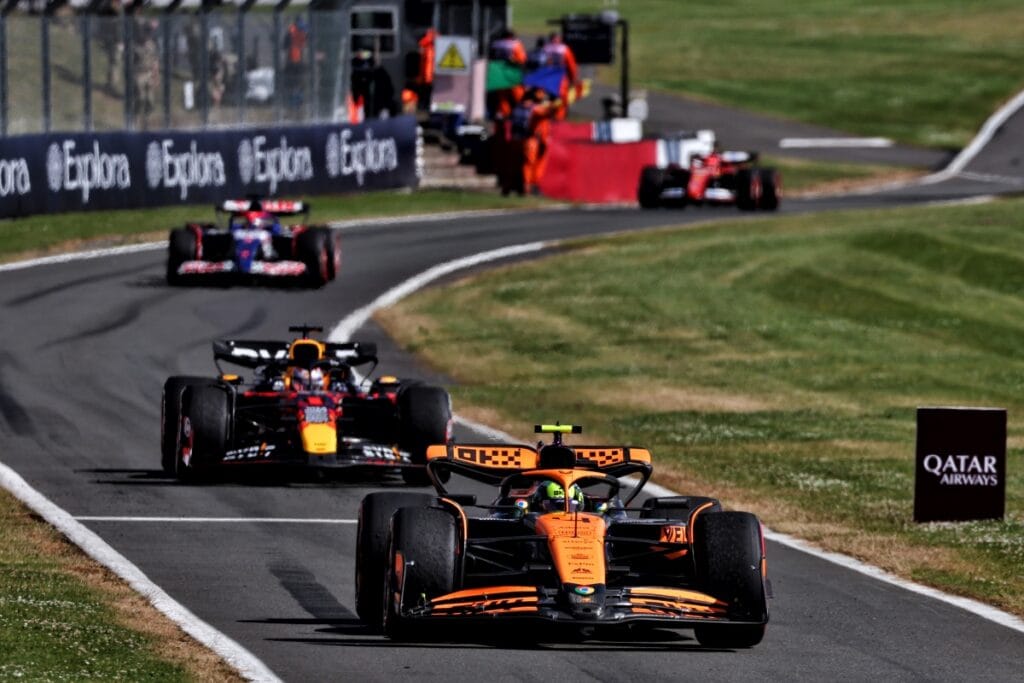McLaren's Secret Weapon Revealed: Why Near Misses Are Actually the Key to F1 Victory

Andrea Stella, the dynamic boss of McLaren, believes the team’s near misses in recent Formula 1 races are “good news” because they show just how far McLaren has come over the past year. The Woking-based squad recently faltered at Silverstone, missing potential wins due to strategic errors in tricky, mixed conditions. Both Lando Norris and Oscar Piastri felt the sting, but Stella remains optimistic, noting that these close calls highlight McLaren’s significant progress.

From being an underdog to emerging as Red Bull’s most consistent challenger in the 2024 season, McLaren has had a fascinating journey. Lando Norris even clinched his maiden win at Miami, setting the stage for more competitive outings. Despite this, the team has repeatedly come close but fallen short, whether in Canada, Spain, or the UK. Various pitfalls, such as misguided pit stop strategies and poor timing, have cost them dearly.
This past weekend, McLaren’s decision not to doublestack during pit stops crushed Piastri's hopes, while Norris, who was leading, lost his advantage by pitting one lap too late. Stella, however, sees missed opportunities as stepping stones rather than setbacks. According to him, the team's ability to be frustrated over narrowly missed victories is a stark contrast to their position just a year ago. “The near misses are good news. We didn’t have these kinds of close calls until 12 months ago,” Stella remarked.
Stella emphasizes the importance of focusing on the positives. “If we don’t start from the positives, we risk building and then destroying,” he adds. His philosophy is that to constantly evolve, McLaren must focus on the upside of their recent performances. Stella believes that Oscar and Lando, although not responsible for some tactical decisions, share the collective responsibility of moving forward and learning from these experiences. “We are racing against teams that have won championships. They are familiar with racing at the top in varying conditions,” he stated. Therefore, McLaren’s journey is still one of growth and learning.
Norris was in a winning position at Silverstone until a misjudgment during the crossover period of the race. However, Stella isn’t concerned. “The frustration will go very rapidly, but the opportunity will come soon,” he assures. Highlighting that near misses should be seen as opportunities for learning and growth, he projects a future where McLaren will be ready to seize the moment when it arrives.
Debunking the narrative that McLaren now has the quickest car in Formula 1, Stella points out that Mercedes was quicker in dry conditions at Silverstone. “There’s this narrative that McLaren is the best car, but I think we just make good use of it,” he counters. Stella credits the team for preparing the car exceptionally well for practice sessions and performing consistently through the weekend, but he remains realistic about the car’s performance. “We saw today that not necessarily we have the fastest car because in the first stint, Mercedes was faster,” he notes.
The key takeaway from McLaren’s recent performances is that while the team might not always have the fastest car, it is their work ethic, preparation, and willingness to improve that makes them stand out. Racing at the front makes any shortcomings more visible, but it also underscores just how competitive McLaren has become. With Andrea Stella at the helm, the team is not just aiming for victories but is committed to continuous improvement, taking every frustration as a step closer to their ultimate goal.
Final Thoughts
In essence, McLaren’s recent “near misses” are not failures but rather signs of immense progress and development. Under Andrea Stella’s leadership, the team has turned past frustrations into valuable lessons, making them more formidable with each race. As they continue to iron out the kinks in their strategy and execution, fans and competitors alike can expect to see McLaren making more headlines—for all the right reasons.